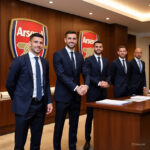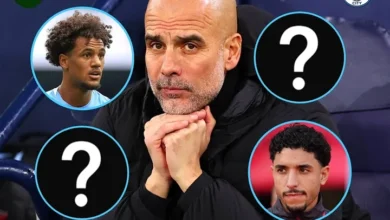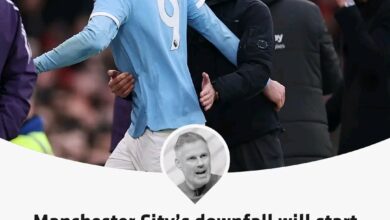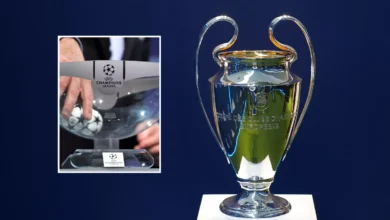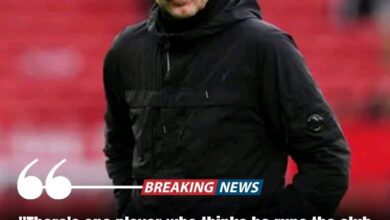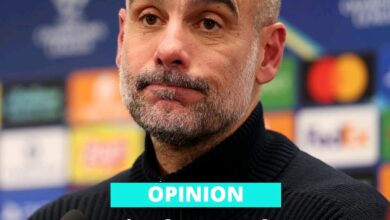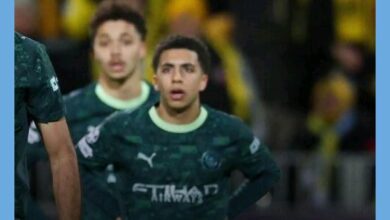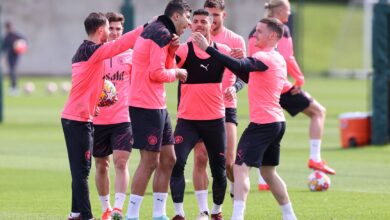Arsenal’s Summer Transfer Revolution: The Zubimendi Saga and Arteta’s Ambitious Rebuild

The final whistle has blown on another Premier League season, and while Arsenal supporters are nursing the disappointment of finishing as runners-up behind Liverpool once again, there’s a palpable sense of anticipation building around the Emirates Stadium. The Gunners, who fell 10 points short of their title aspirations, are now preparing for what could be their most significant summer transfer window under Mikel Arteta’s stewardship.
Since taking charge of Arsenal in December 2019, Mikel Arteta has overseen a remarkable transformation at the north London club. The Spaniard inherited a team that had lost its identity and direction under previous management, but through strategic recruitment and tactical evolution, he has rebuilt Arsenal into genuine title contenders. The numbers tell a compelling story of this reconstruction effort.
Arsenal’s transfer spending under Arteta has been substantial but strategic. From the modest £81.5 million outlay in his first full summer window of 2020, the club has progressively increased its investment in squad improvement. The peak came during the 2023/24 summer window, when Arsenal committed £208 million to new signings, demonstrating the board’s backing for Arteta’s long-term project.
This investment has yielded tangible results. Arsenal have transformed from a mid-table team struggling to secure European qualification into consistent top-four finishers and genuine title challengers. However, the gap to Liverpool this season has highlighted areas where further improvement is essential if they are to finally claim the Premier League crown that has eluded them since 2004. Speaking after Arsenal’s final match of the season against Southampton, Arteta couldn’t contain his excitement about the upcoming transfer window. His words revealed the meticulous planning that has already been underway behind the scenes at the club’s London Colney training ground.
“Now, immediately,” Arteta responded when asked about planning for the new season. “The moment I start to think about that, I feel goosebumps and excitement. We already have some things that we are discussing and making decisions. Everything that is planned for pre-season and the first few weeks of the season is already done two, three months ago. So we are now really good.”
This level of forward planning represents a significant evolution in Arsenal’s approach to the transfer market. Under previous regimes, the club was often criticized for reactive rather than proactive transfer strategies. Arteta’s methodical approach, supported by sporting director Andrea Berta, suggests a more sophisticated operation that identifies targets well in advance and works systematically to secure their services.
The manager’s admission that his daily routine will now shift focus entirely to transfer activities underscores the importance he places on this summer’s recruitment drive. “My day will look already different,” he explained. “There are a lot of things to do, but it won’t be, especially with that feeling in my tummy, that [feeling of] a game is coming up. It will be a different one and that changes everything.”
At the heart of Arsenal’s summer transfer strategy lies their pursuit of Real Sociedad midfielder Martin Zubimendi. The 26-year-old Spanish international has emerged as one of Europe’s most coveted midfield talents, combining technical excellence with tactical intelligence and physical presence. His performances for both club and country have marked him out as exactly the type of player Arsenal need to bridge the gap to Liverpool and Manchester City.
Zubimendi’s credentials are impeccable. A key figure in Spain’s Euro 2024 triumph, he has established himself as one of La Liga’s premier midfielders during his time at Real Sociedad. His ability to dictate tempo, break up opposition attacks, and contribute in the final third makes him an ideal fit for Arteta’s tactical system. Described by many as a “world-class” talent, Zubimendi represents the caliber of player Arsenal must attract if they are serious about winning major trophies.
The pursuit of Zubimendi has been far from straightforward. Initial reports suggested that Arsenal had made significant progress in negotiations, with respected journalist Fabrizio Romano delivering his famous “here we go” confirmation that a deal was imminent. The BBC subsequently reported that a medical had been scheduled for the £51 million-rated midfielder, suggesting that Arsenal were close to securing one of their primary targets.
However, the transfer saga took an unexpected turn when Zubimendi himself appeared to contradict these reports in an interview with Radio Nacional. The midfielder denied that any medical had been arranged, throwing doubt on the entire deal and leaving Arsenal supporters questioning whether their club had been misled or whether the reports were premature.
Adding further complexity to the situation, Real Sociedad president Jokin Aperribay also denied that any agreement was in place, publicly stating that Zubimendi remained committed to the Basque club. These denials sparked concerns among Arsenal fans that their club might be about to suffer another high-profile transfer disappointment, similar to previous failed pursuits of top-tier talent.
Into this atmosphere of uncertainty stepped journalist Graeme Bailey, whose connections within the football industry have earned him a reputation for reliable transfer information. Speaking to The Boot Room, Bailey provided Arsenal supporters with the reassurance they desperately needed, revealing that despite the public denials, the Zubimendi deal was still very much alive.
“Arsenal are aware of the quotes from Zubimendi – but from what I am told, the deal is considered done at the Emirates,” Bailey explained. “They are not worried, they knew these things might come up when Xabi Alonso was appointed.”
This reference to Xabi Alonso’s appointment as Real Sociedad’s new manager adds another layer to the story. Alonso, a former midfielder of exceptional quality himself, might naturally be expected to want to retain his best players as he begins his tenure at the Spanish club. However, Bailey’s sources suggest that Arsenal had anticipated this potential complication and were confident in their position.
“From what I am told, this is happening – it is a done deal,” Bailey continued. “But obviously, the fans want to see that picture of him holding the shirt up, signed and sealed. Until that point, speculation is open to continue.”
Bailey’s confidence in the deal’s completion provides a fascinating insight into the often murky world of transfer negotiations. His suggestion that Arsenal consider the deal “done” despite the public denials indicates that significant progress has been made behind closed doors, possibly including agreements on personal terms and transfer fees that bind all parties regardless of public statements
The acquisition of Martin Zubimendi would represent far more than just another addition to Arsenal’s squad; it would signal the club’s intent to compete at the highest level both domestically and in European competition. The midfielder’s skill set addresses several areas where Arsenal have been found wanting in their pursuit of major honors.
Zubimendi’s technical ability would provide Arsenal with a midfielder capable of dictating games from deep positions. His passing range and vision would allow the team to vary their attacking patterns, providing an alternative to the more direct approaches they have sometimes been forced to adopt. This tactical flexibility could prove crucial in breaking down stubborn defensive setups that have occasionally frustrated Arsenal in recent seasons.
Defensively, Zubimendi’s presence would provide additional steel in midfield. His ability to read the game, intercept passes, and win aerial duels would help protect Arsenal’s defense and provide a platform for their attacking players to flourish. This defensive solidity has been a cornerstone of successful title-winning teams, and Zubimendi’s addition would significantly strengthen this aspect of Arsenal’s play.
The timing of Zubimendi’s potential arrival is also significant given the uncertainty surrounding several current Arsenal midfielders. Thomas Partey’s future remains unclear, with various reports suggesting he could leave the club this summer. Jorginho has already confirmed his departure, leaving a gap in experience and leadership that Zubimendi could fill admirably.
While the Zubimendi pursuit has dominated headlines, Arsenal’s transfer ambitions extend far beyond a single player. The club has been linked with several high-profile targets across multiple positions, suggesting a comprehensive squad overhaul rather than targeted reinforcement.
In attack, Arsenal have been strongly linked with Sporting CP striker Viktor Gyokeres and RB Leipzig’s Benjamin Sesko. Both players represent the type of clinical finisher that Arsenal have sometimes lacked in crucial moments. Gyokeres, in particular, has enjoyed a remarkable season in Portugal, establishing himself as one of Europe’s most prolific strikers. His physical presence and finishing ability would provide Arsenal with a different attacking dimension.
Sesko, meanwhile, offers youth and potential alongside proven goal-scoring ability. The Slovenian international’s performances in the Bundesliga have attracted attention from across Europe, and his addition would provide Arsenal with a long-term solution to their striker needs while offering immediate impact. Defensive reinforcement has also been a priority, with Arsenal having held discussions over a deal for Dean Huijsen before his switch to Real Madrid. The pursuit of young defensive talent indicates Arsenal’s desire to build for both the present and future, ensuring that their defensive stability is maintained even as current players age or move on.
According to Sky Germany’s Florian Plettenberg, Arsenal are also actively pursuing a new winger. This would address another area where the squad could benefit from additional depth and quality. With games coming thick and fast across multiple competitions, having options across all forward positions would allow Arteta greater tactical flexibility and help manage player workloads more effectively.
Arsenal’s transfer spending under Arteta reveals a club that has gradually increased its investment as success has followed. The progression from £81.5 million in the 2020/21 summer window to £208 million in 2023/24 demonstrates both the board’s growing confidence in Arteta’s project and the increasing financial demands of competing at the highest level.
The £101.5 million spent in the 2024/25 summer window was notably lower than the previous year, but this reduction likely reflects the club’s satisfaction with their existing squad rather than financial constraints. The anticipated activity this summer suggests that Arsenal are prepared to make significant investments once again, particularly if it means closing the gap to their title rivals.
The £51 million fee for Zubimendi, while substantial, represents relatively good value in today’s inflated transfer market for a player of his caliber and experience. His age profile – at 26, he is entering his prime years – means that Arsenal would be acquiring a player who could contribute immediately while retaining significant resale value for years to come.
Beyond the tactical and strategic benefits, successfully completing high-profile transfers like the Zubimendi deal would provide Arsenal with important psychological advantages. Attracting world-class players demonstrates the club’s growing appeal and ambition, which in turn makes it easier to attract other top talents.
For existing Arsenal players, seeing the club invest in quality reinforcements provides reassurance about the project they are part of. It demonstrates that the club is serious about winning major trophies and is prepared to back those ambitions with significant investment. This can be crucial in persuading key players to commit their futures to the club rather than seeking moves elsewhere.
The impact on supporters should not be underestimated either. Arsenal fans have endured years of disappointment and near-misses, and high-profile signings provide tangible evidence that the club is moving in the right direction. The excitement generated by major signings can translate into improved atmosphere and support, creating a positive cycle that benefits everyone connected with the club.
As Arsenal prepare for what could be a transformative summer, several challenges lie ahead. The complexity of modern transfer negotiations means that deals can collapse at the final hurdle, as Arsenal have experienced in the past. Managing supporter expectations while pursuing ambitious targets requires careful



